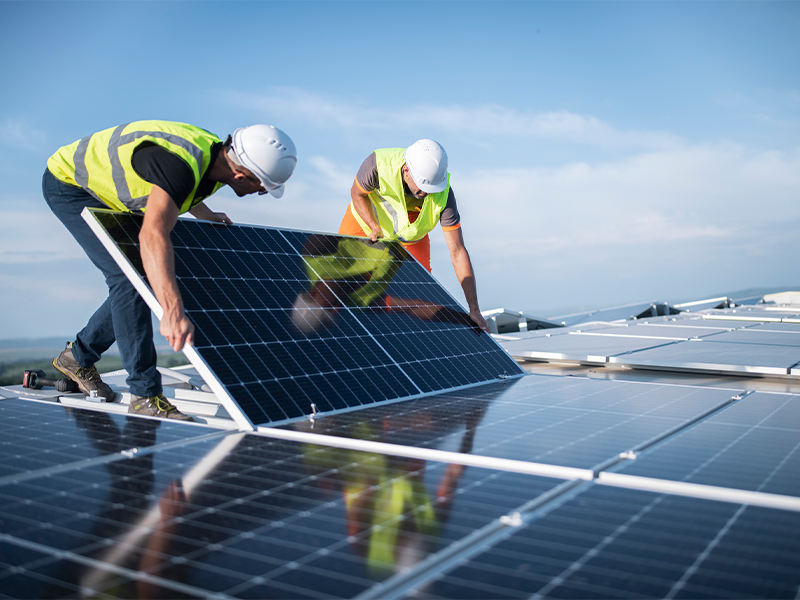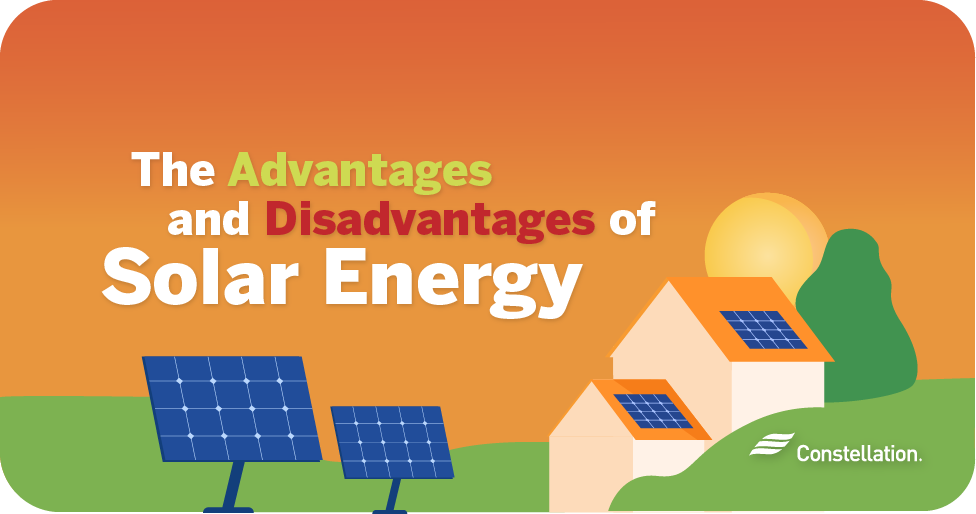Simply Solar Illinois: Sustainable Solar Solutions to Light Up Your Home
Simply Solar Illinois: Sustainable Solar Solutions to Light Up Your Home
Blog Article
How Solar Power Can Aid You Conserve Cash and Minimize Your Carbon Impact
The integration of solar power right into your energy profile presents an engaging opportunity for both monetary savings and environmental stewardship. As various government motivations become readily available, the concern emerges: exactly how can one effectively navigate the first investments and recurring benefits of solar innovation to make the most of both financial and environmental gains?
Recognizing Solar Power Cost Savings
While the transition to solar power frequently includes an initial investment, recognizing solar power cost savings is essential for house owners and services alike. Solar energy systems can dramatically reduce electrical energy costs by harnessing the sun's energy, equating right into substantial long-term monetary advantages. By creating their very own electricity, users lessen dependence on grid power, which undergoes rising and fall rates. These cost savings can accumulate gradually, usually bring about a quick return on financial investment.
In addition, solar energy systems might certify for numerous financial rewards, including tax obligation credit ratings and refunds, better improving their cost-effectiveness. The schedule of web metering allows users to sell excess power back to the grid, producing an added income stream. These elements add to the general cost savings connected with solar power.

Along with route monetary savings, solar power uses the added benefit of increasing residential or commercial property value. Residences equipped with solar panels are commonly more attractive to customers, as they guarantee lower energy costs - Simply Solar Illinois. Comprehending these aspects is crucial for anyone considering solar energy, as it highlights not just the possible economic gains, however likewise the broader ecological and financial advantages of taking on sustainable power services
Preliminary Costs vs. Long-Term Benefits
When examining solar energy, it is very important to evaluate the preliminary expenses against the lasting benefits. The in advance investment for solar panels, installment, and relevant equipment can be substantial, usually ranging from $15,000 to $30,000, relying on the system size and home energy needs. This initial expenditure may prevent some house owners; nonetheless, it is essential to think about the possible cost savings in time.
As soon as mounted, solar energy systems can substantially lower or perhaps remove monthly electrical energy bills, bring about substantial long-lasting economic advantages. Research studies indicate that house owners can conserve anywhere from $10,000 to $30,000 over the life-span of their solar system, commonly 25 years. Furthermore, several states offer motivations, tax obligation credit scores, and discounts that can offset first costs, making solar a lot more obtainable.

Lowering Your Carbon Impact
Lowering your carbon footprint is an essential factor to consider in today's ecologically mindful culture, and embracing solar energy is one of the most efficient strategies to accomplish this objective. Solar power is a tidy, renewable source that significantly decreases dependence on nonrenewable fuel sources, which are significant contributors to greenhouse gas exhausts.

Moreover, the extensive adoption of solar modern technology motivates the growth of green jobs and supports advancements in energy storage space and performance. The more individuals and companies buy solar energy, the better the cumulative decrease in carbon discharges, cultivating a cleaner ambience for future generations.
Government Rewards and Discounts
Adopting solar energy not just profits the environment yet can additionally result in substantial financial cost savings, particularly with the availability of federal government motivations and refunds. Various government, state, and regional programs are designed to urge property owners and organizations to purchase solar power systems, making the transition more budget-friendly.
Among one of the most prominent motivations is the Federal Financial Investment Tax Obligation Debt (ITC), which allows solar system owners to subtract a significant percentage of the installation expenses from their government tax obligations. This reward has been crucial in reducing the upfront expenditures connected with solar power systems. Additionally, several states supply their very own tax obligation credit ratings, grants, and rebates that can further enhance cost savings.
Furthermore, some city governments supply residential property tax exemptions for solar installments, ensuring that property owners do not face raised home taxes as a result of their renewable power investments. Utility business might likewise supply rewards, consisting of net metering and feed-in tariffs, which enable solar energy individuals to market excess power back to the grid.
Selecting the Right Solar System
Selecting the proper solar system is important for maximizing power effectiveness and monetary benefits. The choice pivots on numerous variables, consisting of energy needs, budget, and readily available area. Property owners need to start by assessing their power usage to identify the system dimension required for check this optimum performance.
Following, think about the various kinds of solar technologies offered. Simply Solar next Illinois. Photovoltaic (PV) panels are one of the most common, transforming sunshine directly right into electricity, while solar thermal systems concentrate on heating water. Each type has distinctive advantages depending upon individual demands
Spending plan considerations are likewise paramount. Preliminary installment costs can differ significantly, so it is necessary to contrast quotes from multiple carriers and explore funding alternatives. Government incentives and refunds can further decrease the monetary concern, making planetary systems a lot more accessible.
Conclusion
The ecological benefits of solar energy contribute to sustainable practices important for combating environment modification. Government incentives enhance the feasibility of solar technology fostering, urging a shift towards a cleaner, a lot more financially reliable power source.
Report this page